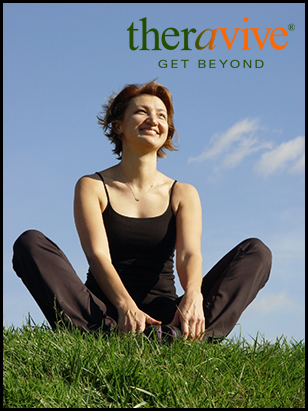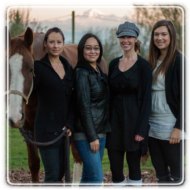 In the book called "The One Life Solution; Reclaim Your Personal Life While Achieving Greater Professional Success", by Dr. Henry Cloud. In chapter five, The Audit, there is a pertinent section defining three areas of awareness for people to consider. It is my belief that awareness is one of the key parts of creating the life you want and empowering you to do so. In the following writing I will attempt to elaborate and expand on these three points of awareness to give another perspective on how to assess for personally defined happiness.
In the book called "The One Life Solution; Reclaim Your Personal Life While Achieving Greater Professional Success", by Dr. Henry Cloud. In chapter five, The Audit, there is a pertinent section defining three areas of awareness for people to consider. It is my belief that awareness is one of the key parts of creating the life you want and empowering you to do so. In the following writing I will attempt to elaborate and expand on these three points of awareness to give another perspective on how to assess for personally defined happiness.
Awareness number One - Know where you spend your time
Time is one of the most valuable resources that we humans have. This is grossly under or over estimated and rarely do we spend time thinking about it's worth. It is not until you find yourself wondering “where has the time gone” or wishing that you had 48 hours in the day, that the idea of time as a resource shows up in one's life. I find it interesting being in a profession where time is how you are compensated and it is often undervalued for worth namely due to that fact that it is intangible. There is nothing solid that you can hold in your hand and feel the weight of, time is in the air, and the only thing that keeps it at all inconsistent are the clocks on the walls. Some of the questions we may ask is how do we hold onto our time? Are we happy doing what we're doing? Whether this be at work, with our friends or any of our activities that we do on a daily basis. One thing that I often wonder about is quality time versus quantity time. If we know where we are spending our time and we can also see if it is quality or quantity? Why do we want to spend endless hours doing make work projects when we could be more efficient and know that we don't have to spend endless amounts to have good things and creative aspects of life develop. In the book, Cloud also mentions that we need to remember that our time is our experience which by nature, is very subjective and the reality of it is very different for each person. Most people would not know that they actually watch between 4-5 hours of TV a day… Now just think what would happen to help obesity and emotional well-being if we could all capture just a fraction of that time a week in a brisk walk or reading an informative book? The same thing might happen to your own mental and emotional health if you find out where your time is really going…
Awareness number Two - Discover the connections and disconnections between your values and how you spend your time.
When somebody has a disconnection between what matters to them and what they are doing e.g. their time, there is pain. This pain is hard to put a finger on just like time is, as it is not a gaping wound that bleeds so that you can see, moreover it is something that you feel. It is something inside your whole body that creates discomfort and some people have described this as being an icky feeling in your stomach. Cloud offers that when you feel this pain inside relating to the disconnection between your values and your time that there is a need to re-balance and think about spending time on things that matter. The challenge is that it is easy for this balance to become askew and it is my belief that society has not sent us up to live a healthy life in that we are always tuned in, plugged in, expected to do more, have multiple jobs, and we are supposed to be successful movie stars! I would like to offer a suggestion that in this section we also think about time from a different perspective, one that time spent doing the things we love will make it feel as though we are not spending any time at all in the negative. When we renew our resources we will have more time no matter how the clock ticks.
 Awareness Three - Identify personal issues that contribute to the problem.
Awareness Three - Identify personal issues that contribute to the problem.
This is perhaps one of the most difficult points of awareness to look at. When reflecting on one's own personal challenges it takes great courage and risk seeing what others and yourself might define as failures and mistakes. One of the founding fathers of psychology, Alfred Adler, based one of his psychological principles on the key point that it takes courage to make mistakes. Therefore, I would encourage anyone to think of personal issues as learning opportunities rather than something that holds us and defines us in a negative way. People come to an awareness on personal issues in a variety of different ways such as counselling, self-help support groups and books, self reflection, and good supportive people all round. It is my belief that all of these possibilities are helpful in creating movement in one's life around awareness.
Seven Steps in Moving Forward
Considering the above information on awareness with the three key points of; knowing where you spend your time, discovering connections and disconnections between your values and how you spend that time, and identifying personal issues that contribute, here are the seven steps to help move these areas into personal freedom and happiness
1. Select the triggering situations to process
2. Center yourself in the present with slow deep breaths
3. Identify and feel your emotions and feelings
4. Feel and notice the location of any sensations in your body
5. Except your feelings and be confident that you can handle the emotions and sensations
6. Identify what you tell yourself in your mind that is triggering any painful emotions
7. Connect empathetically to understand and validate your experience
_________________________________________________________________________________________________________________________________
Cristina works in Abbotsford BC and is the creator of both Shamrock Counselling Services (www.shamrockcounselling.com ) & Sundance Solace Society (www.sundancesolace.com). Sundance Solace is a non-profit branch that focuses on the power of nature to benefit people. If you would like to be involved there are a number of opportunities including: professional and practicum internships, associate positions, and volunteering. Please contact Cristina for more information
By Cristina Rennie MA, RCC, CEIP – MH
www.shamrockcounselling.com
shamrockcounselling.cristina@gmail.com
604 751 2354
About the Author

Shamrock Counselling
, MA, RCC, CBEIP, NAEFWShamrock Counselling specializes in a unique style of counselling known as Equine Facilitated Counselling. Clients have the opportunity to work alongside horses in a safe, open and outdoor environment. In addition to Equine Facilitated Counselling, Shamrock Counselling also offers Traditional Counselling at their second location in the heart of Downtown Abbotsford. Shamrock Counselling is made of a team of qualified counsellors with specialization in a large range of different areas.
Office Location:
31050 Harris Rd.
Abbotsford, British Columbia
V4X 1W2
Canada
Phone: 604-751-2354
Contact Shamrock Counselling
Professional Website:
www.shamrockcounselling.com